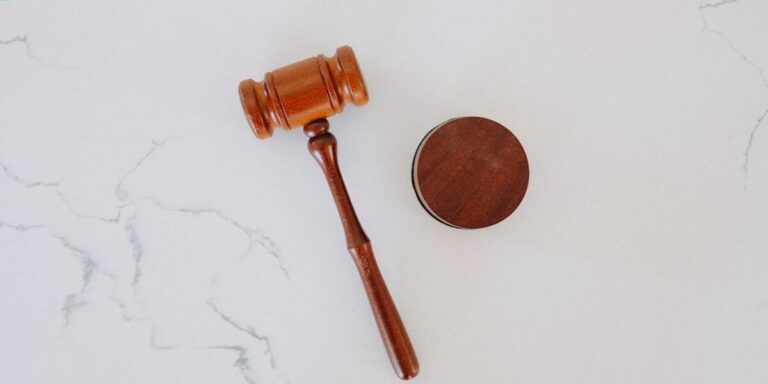Estate Planning For Personal Property Distribution
Imagine a world where your belongings are distributed exactly as you wish after you’re gone. No disputes or disagreements, just smooth sailing for your loved ones. This is the power of estate planning for personal property distribution. By taking the time to carefully plan and document your preferences, you can ensure that your treasured possessions end up in the right hands. Whether it’s sentimental family heirlooms or valuable assets, estate planning gives you control over their future. If you’re looking to learn more about estate planning and how it works, look no further. Contact the estate planning lawyer listed on this page for a consultation and take the first step towards securing your legacy.
Understanding Estate Planning
What is estate planning?
Estate planning refers to the process of organizing and making decisions about the distribution of your assets and personal property after your death. It involves creating legal documents, such as wills and trusts, to ensure that your wishes are carried out. Estate planning also includes appointing a guardian for minor children, planning for incapacity, and minimizing taxes and expenses.
Importance of estate planning
Estate planning is crucial for several reasons. Firstly, it allows you to have control over how your assets will be distributed and who will inherit them. Without an estate plan, your assets may be subject to intestacy laws, which could result in unintended beneficiaries and disputes among family members. Secondly, estate planning can help minimize estate taxes and other costs, ensuring that more of your assets go to your desired beneficiaries. Lastly, estate planning allows you to appoint a trustworthy individual to handle your affairs and make important decisions on your behalf if you become incapacitated.
Benefits of estate planning
There are numerous benefits to estate planning. Firstly, it provides peace of mind knowing that your assets and personal property will be distributed according to your wishes. It also helps avoid probate, a legal process that can be time-consuming and expensive. Estate planning allows for a smooth transfer of assets, minimizing the burden on your loved ones. Additionally, it can help protect your assets from creditors or other potential threats. Finally, estate planning can reduce conflicts and potential disputes among family members, ensuring a harmonious distribution of your personal property.
Key elements of estate planning
Estate planning involves several key elements to ensure a comprehensive and effective distribution of personal property. These elements include creating a will or trust, designating beneficiaries and heirs, appointing an executor or trustee, making provisions for minor children, establishing healthcare directives and powers of attorney, and considering tax planning strategies. Each of these components plays a crucial role in ensuring that your estate is managed and distributed according to your wishes.
Personal Property in Estate Planning
Definition of personal property
Personal property refers to any movable assets that can be owned by an individual. It includes items such as vehicles, jewelry, artwork, furniture, collectibles, and financial accounts. Unlike real property, which includes land and buildings, personal property can be easily transferred or inherited.
Differentiating personal property from real property
While personal property refers to movable assets, real property includes immovable assets such as land and buildings. Real property is typically transferred through a deed, whereas personal property can be distributed through a will, trust, or by gifting it during one’s lifetime.
Common types of personal property
Personal property encompasses a wide range of assets. Some common types include:
- Vehicles: Cars, motorcycles, boats, and recreational vehicles.
- Jewelry: Rings, necklaces, watches, and other valuable accessories.
- Artwork: Paintings, sculptures, photographs, and other forms of artistic expression.
- Furniture: Sofas, tables, chairs, beds, and other household furnishings.
- Collectibles: Coins, stamps, sports memorabilia, antiques, and other valuable items.
- Financial accounts: Bank accounts, investment portfolios, retirement accounts, and stocks.
- Digital assets: Online accounts, social media profiles, and digital media.
Determining the value of personal property
It is essential to determine the value of personal property accurately for estate planning purposes. The value can be determined through appraisals, market research, or professional opinions. Hiring a qualified appraiser can help assess the fair market value of valuable items such as artwork or collectibles. For financial accounts, it is necessary to obtain statements or work with a financial advisor to determine their current worth.

This image is property of images.unsplash.com.
The Role of a Personal Property Inventory
What is a personal property inventory?
A personal property inventory is a detailed list that documents all of your personal belongings and assets. It serves as a comprehensive record of your personal property, providing crucial information for estate planning and distribution purposes. This inventory includes descriptions, photographs, appraisals, and other pertinent details about each item.
Importance of creating a personal property inventory
Creating a personal property inventory is vital for several reasons. Firstly, it provides a clear overview of all your assets, ensuring that nothing is overlooked during the estate planning process. Additionally, an inventory can help prevent disputes among beneficiaries by clearly stating what items are included in the estate. Moreover, having an inventory can simplify the process of valuing personal property and assist in determining fair distribution among heirs.
Methods for creating a personal property inventory
There are several methods to create a personal property inventory. One approach is to go room by room and document each item, including its description, value, and any relevant details. Utilizing a digital inventory management system or software can streamline the process and allow for easy updates over time. Another option is to hire a professional appraiser or estate planning expert who can assist in inventory creation and valuation.
Updating and maintaining the inventory
Regularly updating and maintaining the personal property inventory is crucial to ensure its accuracy. Any new acquisitions or changes should be promptly recorded to reflect the current state of your estate. It is recommended to review and update the inventory annually or as significant changes occur in your personal property holdings. Proper maintenance of the inventory will facilitate the estate planning process and ensure that your wishes are accurately reflected.
Choosing the Right Executor
Definition of an executor
An executor, also known as a personal representative, is an individual or entity appointed in a will to oversee the administration and distribution of an estate. The executor carries out various tasks, such as gathering assets, paying debts and taxes, distributing property to beneficiaries, and handling any legal or financial matters associated with the estate.
Importance of selecting a capable executor
Choosing a capable executor is of utmost importance as this person will be responsible for handling your estate after your death. A capable executor should be trustworthy, organized, and able to carry out the necessary duties effectively. It is essential to select someone who understands your wishes and is capable of managing financial matters and potentially complex legal processes.
Factors to consider when choosing an executor
When selecting an executor, consider the following factors:
- Trustworthiness and integrity: Choose someone you trust to act in the best interest of your estate and beneficiaries.
- Organizational skills: Your executor should be detail-oriented and capable of managing paperwork, deadlines, and financial matters.
- Financial competence: Consider an individual who is comfortable handling financial matters, including assets, debts, and taxes.
- Availability and willingness: Ensure that the chosen executor is willing and able to take on the responsibilities associated with administering an estate.
- Personal dynamics: Consider familial relationships and potential conflicts when selecting an executor.
Alternatives to selecting an individual as the executor
If you do not have a suitable individual to appoint as an executor, there are alternative options to consider. You can choose a professional executor, such as an attorney or a trust company, who specializes in estate administration. This ensures impartiality and expertise in managing the distribution of personal property. Another option is to appoint co-executors, where multiple individuals share the responsibilities. This can provide a balance of skills, perspectives, and oversight during the estate administration process.

This image is property of images.unsplash.com.
Understanding Probate
Definition of probate
Probate is the legal process that validates and carries out the distribution of a person’s estate after their death. It involves proving the validity of a will, gathering and appraising assets, paying debts and taxes, and distributing the remaining assets to the beneficiaries. Probate is typically supervised by a court and can vary in length and complexity depending on the complexity of the estate.
Role of probate in personal property distribution
Probate plays a significant role in the distribution of personal property. During the probate process, the court oversees the transfer of assets according to the instructions outlined in the will or according to state laws if there is no will. The court ensures that debts and taxes are paid, and the remaining assets are distributed to the designated beneficiaries or heirs.
Pros and cons of probate
Probate has both advantages and disadvantages. One advantage is that the court’s supervision can provide a level of transparency and protection for the beneficiaries, ensuring that assets are distributed as intended. Additionally, probate provides a structured process for resolving disputes and claims against the estate. However, probate can be time-consuming, expensive, and subject to public record, which may result in a lack of privacy for the deceased and their family members.
Avoiding probate for personal property
There are alternatives to avoid probate for personal property distribution. One option is to create a revocable living trust, which allows you to transfer assets to the trust during your lifetime. Upon your death, the assets in the trust can be distributed to the beneficiaries without the need for probate. Another option is to designating beneficiaries on certain assets, such as life insurance policies, retirement accounts, and bank accounts. By designating beneficiaries, these assets can bypass probate and be transferred directly to the designated individuals.
Wills vs. Trusts
Differences between wills and trusts
Wills and trusts are both estate planning tools but have key differences. A will is a legal document that outlines how your assets will be distributed after your death. It goes into effect upon your passing and must go through the probate process. A trust, on the other hand, is a legal entity that holds and manages assets during your lifetime and after your death. Assets in a trust can be distributed without going through probate.
Advantages and disadvantages of wills
Wills have several advantages, including their simplicity and cost-effectiveness. They are relatively easy to create, and you can modify them throughout your lifetime. Wills also allow you to name a guardian for minor children and specify your funeral and burial preferences. However, wills do have some disadvantages. They must go through probate, which can be time-consuming and costly. Wills are also subject to public record, potentially reducing privacy for your estate and beneficiaries.
Advantages and disadvantages of trusts
Trusts offer several advantages, such as the ability to avoid probate and maintain privacy. Trusts also provide flexibility, as you can establish specific instructions for the distribution of assets and set conditions or timelines for the beneficiaries. Additionally, trusts are useful for managing assets if you become incapacitated, as a trustee can step in to manage them. However, creating and funding a trust can be more complex and costly than creating a will. Trusts also require ongoing maintenance and administration.
Choosing the right option for personal property distribution
Choosing between a will and a trust depends on your specific circumstances and goals. If avoiding probate and maintaining privacy are priorities, a trust may be the best option. However, if your estate is relatively simple, and you have no concerns about probate or privacy, a will can be a more straightforward and cost-effective choice. Consulting with an estate planning lawyer can help you determine the most appropriate option for your individual needs.
Gifting Personal Property
Benefits of gifting personal property
Gifting personal property can be a fulfilling way to distribute assets during your lifetime. Some benefits of gifting include:
- Seeing the joy and appreciation of the recipients while you are still alive.
- Reducing the taxable value of your estate, which can help minimize estate taxes.
- Simplifying the estate planning process by reducing the number of assets subject to distribution after your death.
- Potentially avoiding probate for the gifted assets, allowing for a smoother transfer.
Methods for gifting personal property
There are several methods for gifting personal property. These include:
- Direct gifting: Simply giving the item to the intended recipient.
- Creating a gift deed: A legal document that transfers ownership of the property to the recipient.
- Establishing a gift trust: Setting up a trust that holds the gifted assets for the benefit of the recipient.
- Using annual gift tax exclusions: Taking advantage of the annual gift tax exclusion amount to gift assets without incurring taxes.
- Donating to a charity: Giving personal property to a charitable organization can provide tax benefits while supporting a cause you care about.
Tax considerations for gifting personal property
When gifting personal property, it’s important to consider potential tax implications. Depending on the value of the gift, you may be subject to federal gift tax. However, there are annual gift tax exclusions and lifetime gift tax exemptions that can help minimize or eliminate the tax burden. Consulting with a tax advisor or estate planning lawyer can provide guidance on the specific tax implications of gifting personal property.
Limitations and restrictions on gifting
While gifting personal property can be a generous gesture, there are limitations and restrictions to keep in mind. Some items may be subject to restrictions due to their nature or value, such as firearms, certain collectibles, or controlled substances. Additionally, if you anticipate needing the gifted property in the future, it may be wise to consider other options, such as setting up a trust or retaining ownership with specific instructions for distribution upon your death.
Charitable Donations
Donating personal property to charitable organizations
Donating personal property to charitable organizations can be a meaningful way to support causes you care about. Many nonprofit organizations accept donations of personal property, including household items, clothing, furniture, vehicles, and artwork. By donating personal property, you can provide assistance to those in need and potentially receive tax benefits.
Tax benefits of charitable donations
When you donate personal property to charitable organizations, you may be eligible for tax benefits. The Internal Revenue Service (IRS) allows individuals to deduct the fair market value of the donated property from their taxable income. However, it is essential to adhere to IRS guidelines and maintain proper documentation, such as appraisals or receipts, to support the value of the donated item.
Methods for making charitable donations
There are several methods for making charitable donations of personal property. These include:
- Direct donation: Contacting the charitable organization directly and coordinating the transfer of the personal property.
- Donor-Advised Funds (DAFs): Establishing a DAF allows you to make contributions to the fund and recommend grants to charitable organizations at a later time.
- Charitable Remainder Trusts (CRTs): Setting up a CRT allows you to donate personal property while retaining an income stream from the trust for a specific period.
Considerations when planning charitable donations
When planning charitable donations of personal property, consider the following:
- Choose reputable charitable organizations that align with your values and mission.
- Understand the tax implications and requirements for documenting the donation.
- Properly value the donated personal property for tax purposes by obtaining appraisals or professional opinions.
- Communicate your intentions and wishes with both the charitable organization and your estate planning beneficiaries to avoid potential conflicts.

This image is property of images.unsplash.com.
Creating a Personal Property Memorandum
What is a personal property memorandum?
A personal property memorandum is a separate document that is referenced in your will or trust. It allows you to specify the distribution of specific personal property items to specific individuals. This memorandum can be regularly updated without having to amend the entire will or trust.
Legal validity of a personal property memorandum
The legal validity of a personal property memorandum can vary depending on state laws. While some states explicitly recognize personal property memoranda as legally binding, others may require additional steps or documentation for the memorandum to be enforceable. It is crucial to consult an estate planning lawyer in your jurisdiction to ensure compliance with local laws.
Including specific instructions in a personal property memorandum
A personal property memorandum allows you to provide specific instructions regarding the distribution of personal property items. You can list specific items, such as jewelry or artwork, and designate who should receive them. This flexibility allows for detailed personal wishes without the need to modify the will or trust each time you want to update the distribution of personal property.
Updating and revoking a personal property memorandum
To ensure the accuracy and relevance of your personal property memorandum, it is essential to review and update it periodically. If you wish to make changes or additions to the memorandum, you can create a new document or modify the existing one with the guidance of an estate planning professional. It is important to revoke any previously executed personal property memorandum if you create a new one to avoid confusion.
Professional Assistance for Estate Planning
Importance of consulting an estate planning lawyer
Consulting an estate planning lawyer is crucial for ensuring a comprehensive and legally sound estate plan. Estate planning laws can vary by jurisdiction, and the assistance of a professional can help navigate the complexities. A lawyer specialized in estate planning can provide guidance on the most suitable strategies, address specific concerns, and ensure that your wishes are accurately reflected in the legal documents.
What to expect during an estate planning consultation
During an estate planning consultation, the lawyer will typically gather information about your assets, personal property, family dynamics, and goals. They will assess your current estate plan, if any, and identify any gaps or areas that need attention. The lawyer will provide guidance on appropriate estate planning tools, discuss potential strategies for minimizing taxes and expenses, and address any specific concerns or goals you may have.
Questions to ask an estate planning lawyer
When consulting an estate planning lawyer, consider asking the following questions:
- What estate planning documents are necessary for my specific situation?
- How can I minimize estate taxes and expenses?
- What strategies can I use to ensure the smooth transfer of personal property?
- How can I protect my assets and beneficiaries from potential threats or disputes?
- What happens if I become incapacitated, and how can I plan for that possibility?
- How can I update my estate plan in the future?
- What are the potential legal or financial implications of my estate planning decisions?
Next steps after the consultation
After consulting an estate planning lawyer, it is important to take the necessary steps to implement your estate plan. This may involve providing additional information or documents requested by the lawyer, reviewing and signing the drafted legal documents, and communicating the details of your plan with your appointed executor or guardians. Regularly reviewing and updating your estate plan as circumstances change is also essential to ensure its ongoing relevance and accuracy.









